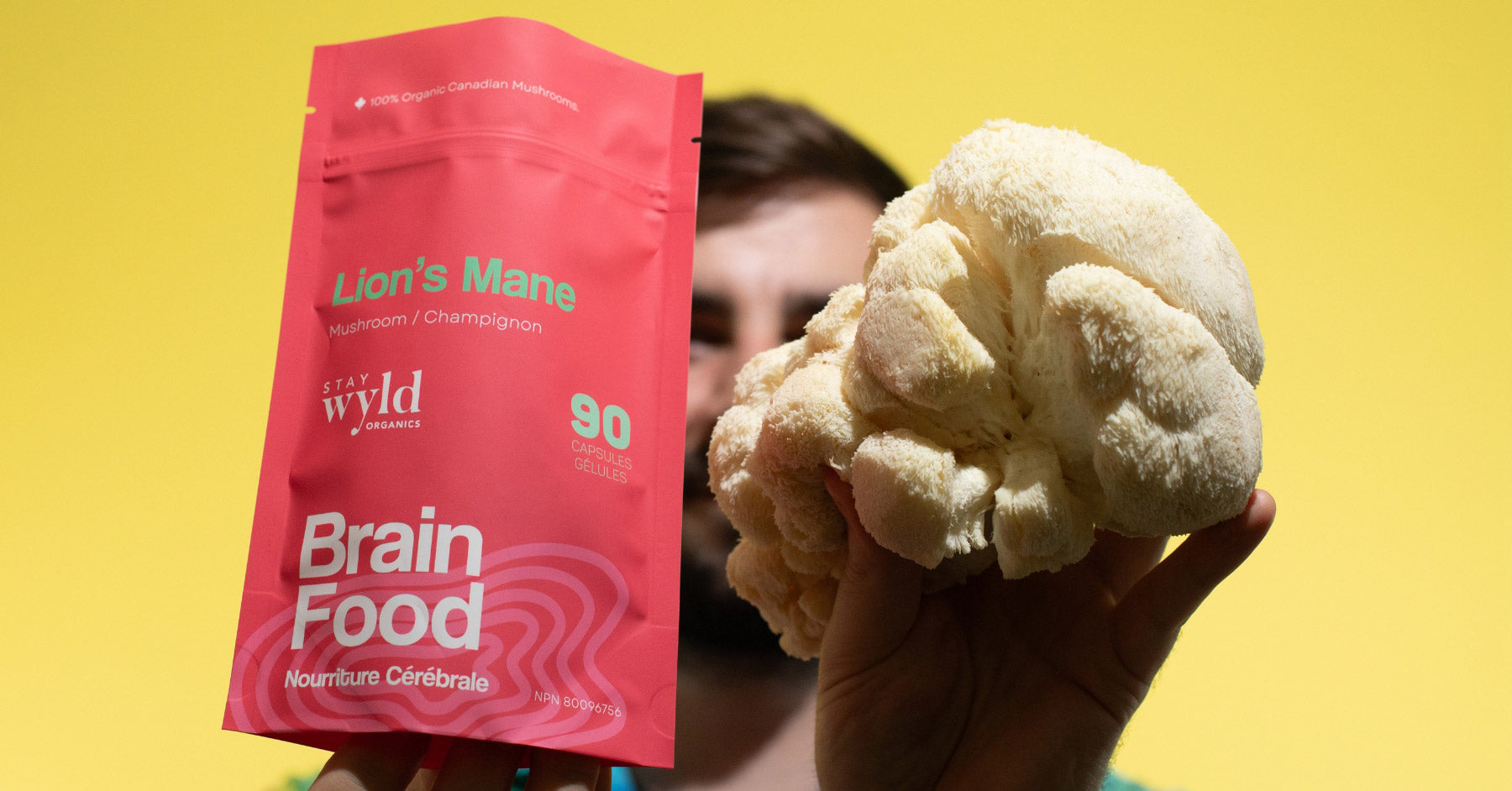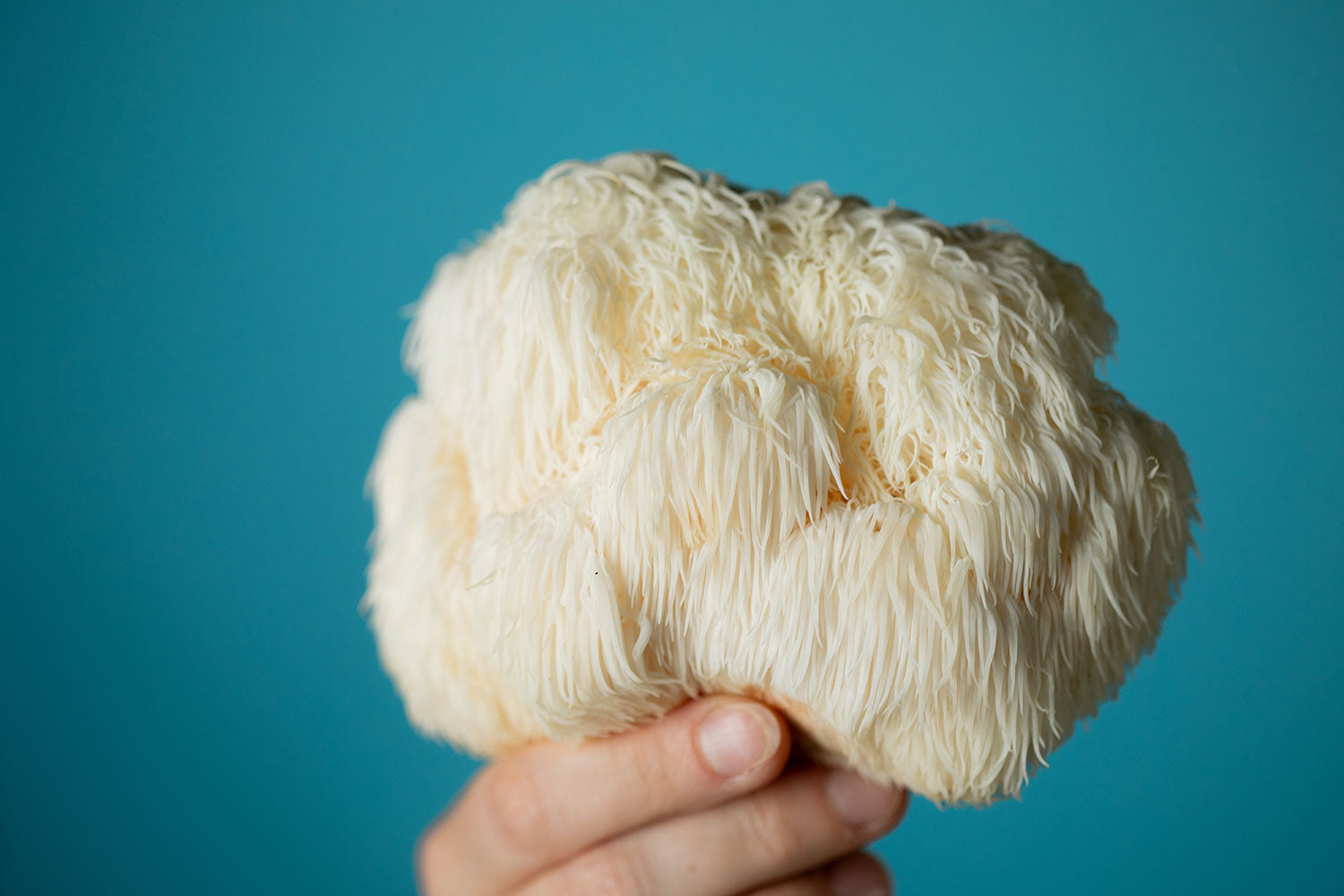
Lion’s Mane Mushroom & Brain Health: The Science Behind Erinacines
2 minute read

Could a mushroom help protect your brain from stroke, Parkinson’s, Alzheimer’s, and even depression? Research on Hericium erinaceus — better known as Lion’s Mane — says yes, and the secret may lie in compounds called erinacines.
What Are Erinacines?
Erinacines are natural molecules found in the mycelium (the root-like network) of Lion’s Mane. They’re especially good at stimulating nerve growth factor (NGF) — a protein that helps brain cells grow, survive, and repair themselves.
In lab and animal studies, one erinacine in particular, Erinacine A, has shown the ability to:
-
Boost NGF and dopamine levels in the brain
-
Reduce harmful brain plaque linked to Alzheimer’s
-
Shield neurons from damage caused by oxidative stress and inflammation
The Neuroprotective Benefits
1. Stroke Recovery
In rats, erinacine A-enriched Lion’s Mane reduced brain damage from stroke by up to 44%. It also preserved more healthy neurons and lowered inflammation markers.
2. Parkinson’s Protection
In a Parkinson’s disease model, animals given Lion’s Mane mycelium kept more dopamine-producing neurons, had less oxidative stress, and showed better movement control.
3. Alzheimer’s Defense
Mice prone to Alzheimer’s developed fewer amyloid-β plaques, had more new neurons in memory-related brain areas, and performed better on memory tasks after taking erinacine-rich Lion’s Mane.
4. Mood & Cognitive Boost
Studies suggest benefits for depression-like symptoms in animals, possibly through balancing serotonin, dopamine, and norepinephrine — key mood-related brain chemicals.
5. Pain & Hearing Support
Early research indicates Lion’s Mane mycelium might reduce neuropathic pain and slow age-related hearing decline.
Is It Safe?
Toxicology studies found erinacine-enriched Lion’s Mane mycelium to be well-tolerated — even in high doses — with no evidence of mutagenicity or developmental toxicity.
Why This Matters
Neurodegenerative diseases often progress silently for years before symptoms appear. Preventative nutrition — especially with bioactive compounds that support neuron growth — could be a critical piece of brain health strategy.
Takeaway
Lion’s Mane isn’t just a culinary delicacy — it’s a promising neuroprotective food. While more human trials are needed, the existing evidence is compelling enough to make Lion’s Mane worth considering in your daily wellness routine.
Want to dive into the full research? You can read the original peer-reviewed paper here.
Leave a comment
All comments are moderated before being published.
This site is protected by hCaptcha and the hCaptcha Privacy Policy and Terms of Service apply.
